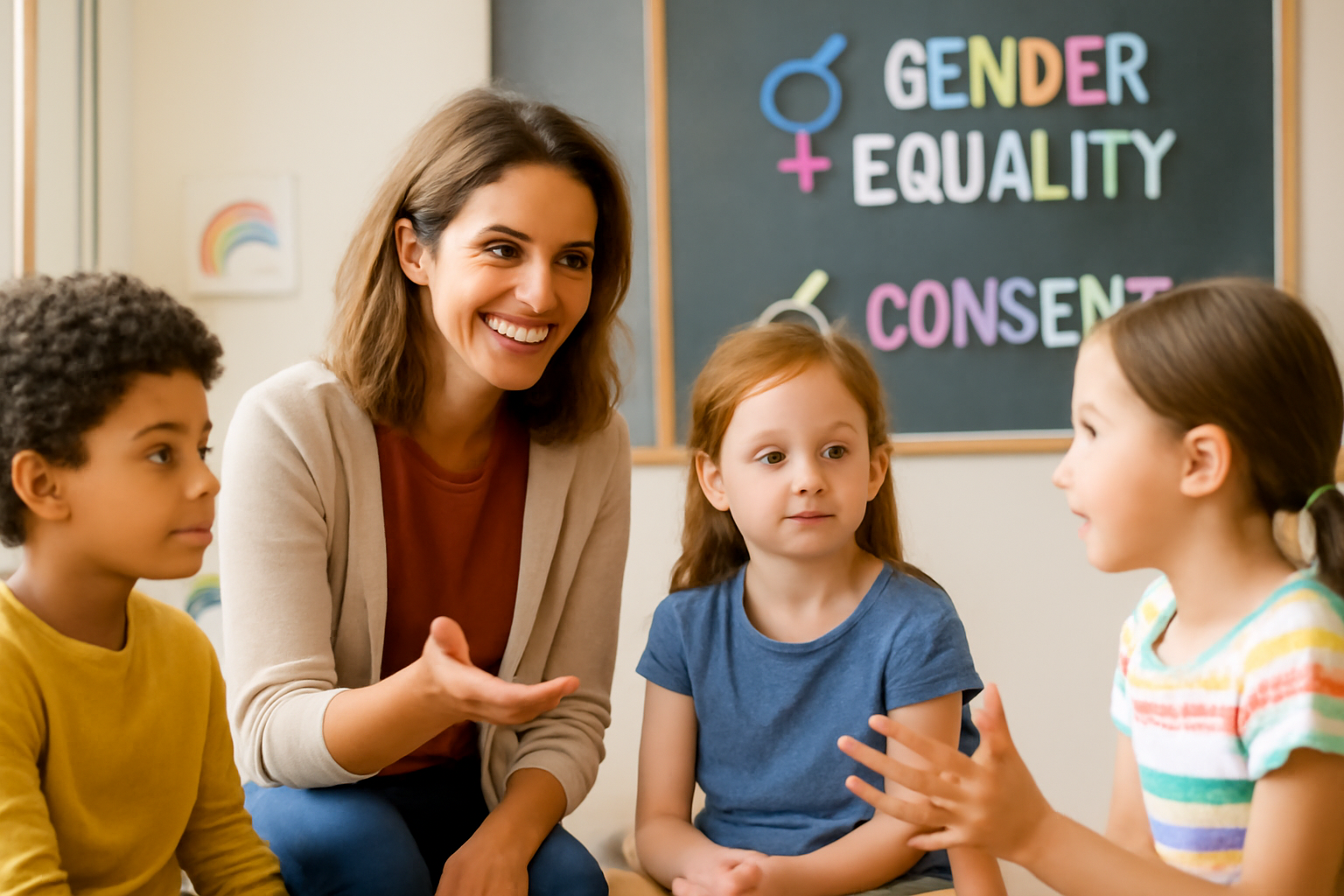
France is embarking on a transformative educational initiative by integrating lessons on gender equality and consent into the curriculum for children as young as four years old. This initiative encompasses both public and private educational institutions across the nation.
The French Education Minister, Elisabeth Borne, is spearheading this significant reform with the aim of revamping the sex education syllabus. This effort is part of a broader strategy to address issues of sexual violence and promote respect for women and girls.
In an interview with a leading French broadcaster, Minister Borne emphasized the importance of early education on these topics. She stated, "Education about love, relationships, and sexuality is absolutely essential." This statement underscores the government's commitment to fostering an educational environment that nurtures understanding and respect among young learners.
The innovative curriculum is scheduled to be rolled out after the summer break. It will involve three dedicated sex education sessions annually, catering to students in primary, middle, and secondary schools.
Key Components of the Curriculum
The curriculum includes age-appropriate content that introduces young children to fundamental concepts related to gender identity and biological sex. For four-year-olds, this means learning scientific terms for genitalia and delving into discussions about equality and consent.
Minister Borne assured that the program’s content is meticulously tailored to match the age and maturity of the students. For instance, interactive elements such as role-play scenarios are included to help younger children understand consent in practical terms. An example activity involves asking questions like, "Can I hold your hand?" to illustrate that it is perfectly acceptable to decline unwanted physical contact.
As students progress through the educational system, the complexity of the topics increases. By the age of 13, students will engage with the distinctions between biological sex, gender, and sexual orientation. This foundational knowledge aims to cultivate a deeper understanding of these complex issues.
When students reach the age of 14, the curriculum expands to cover the multifaceted nature of sexuality, incorporating discussions on facets such as pleasure, love, and reproduction. By the time students are 16, they will participate in lessons that explore the biological differences between men and women, emphasizing that these differences do not dictate self-expression, behavior, or societal roles.
Educational Philosophy and Parental Involvement
While these educational reforms are comprehensive, the program explicitly acknowledges the role of parents and families in the sexual education of their children. It is designed not to supplant familial guidance but to complement it, providing a structured framework within the school system.
The proposed curriculum has been submitted to France’s Higher Education Council for approval, reflecting the government’s dedication to ensuring that the content is scientifically accurate and pedagogically sound.
This initiative represents a proactive step by the French government to equip young people with the knowledge necessary to navigate the complexities of human relationships and personal boundaries. By fostering an environment of inclusivity and respect from an early age, the program aims to reduce instances of sexual violence and create a more equitable society.
In summary, France's introduction of gender equality and consent education is a landmark move in the national education policy. It highlights the importance of such education in shaping a more inclusive and respectful future generation, equipped with the understanding and tools to foster healthy interpersonal relationships.
Related Posts
Triumphant Trans Woman Wins Legal Battle and Inspires Others to Stand Up for Their Rights
Breaking new ground: a landmark victory in transgender rights After battling in courtrooms and enduring endless challenges, Diana Portillo, a transgender woman, has secured a monumental victory in her decade-long fight against workplace discrimination. The result? Nearly $1 million awarded in a historic settlement. But this isn't just a win on paper—it represents a powerful precedent in combati [...]
Pride Month in Latin America: Protests and Demands for Equality
**Celebrating Pride and advocating LGBTQ+ rights in Latin America** Pride Month in Latin America was a lively mix where celebration met activism. Communities united, not just throwing a party but making a stand—demanding equality and pushing governments toward better protection and rights recognition. Throughout Latin America, pride events erupted in marches and cultural displays, each with a c [...]
Transgender Erasure Actions Implemented by National Park Service
```html Trump administration's impact on national park service and transgender recognition The Trump administration made notable moves in undermining transgender representation, which included directing agencies like National Park Service not include "T" and "Q" when they refered “LGBTQ” in any official communication. This move seems part a broader plan by this administration aimed at reducin [...]